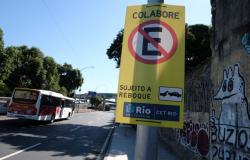The Action Plan for Neoindustrialization, called Nova Indústria Brasil (NIB), launched on January 22nd by the federal government, has political, historical and conjunctural factors in its favor. The world has resumed industrial policy and this change is lasting.
Clashes between the USA and China, from a commercial point of view and other deeper ones, especially with Russia, due to the war in Ukraine, associated with the growth of NATO in Europe and the outbreak of yet another serious conflict in the Middle East have deepened a major geopolitical crisis.
From this geopolitical change, a new paradigm of international relations is established, curbing globalization and imposing on central countries the adoption of several internal policies, among them, the industrial resumption for the recovery of production chains and technological development capacity, with less dependence on other markets due to this instability in relations between countries.
The industry, which will be reborn in Brazil through the NIB, can recover much more complex industrial segments than today’s, more technological ones, and this new policy aims to reestablish these processes that have been lost over time.
It is an industrial policy that, firstly: attempts to stop deindustrialization, interrupting the process that disrupted important production chains in the country, as was the case with electronics, mainly due to the inability to compete with much more competitive international suppliers due to the cost of international capital and subsidies.
Second: it connects Brazil with the recovery of its industrial fabric, rescuing and opening the possibility of credit to increase productivity, as, for example, is foreseen in mission 4 of the NIB, through the Brasil Mais Produtivo Program, to support productivity and digital transformation for micro, small and medium-sized companies.
Third: focuses on international opportunities from an environmental point of view, as Brazil has an advantageous position in the face of the climate crisis and environmental issues.
Therefore, industrial policy becomes a decisive instrument of policy, it is related to social demands and does not separate the working class, as happened in industrial policies of the past.
On the contrary, workers organized in the CUT Industry Macrossector, a forum that brings together the confederations of the metallurgical, chemical, clothing, food, civil construction and wood industries and Sinergia, with the participation of the Labor, Industry and Development Institute , TID-Brasil and IndustriAll Brasil, debated and created the Industry 10+ Plan for Productive, Technological and Social Development, organized by the Inter-Union Department of Statistics and Socioeconomic Studies (Dieese) with the contribution of different social actors, including university professors, representatives of industrial segments, economists, sociologists, social scientists, among others.
The Industry 10+ Plan, a set of guidelines for the reindustrialization of Brazil, was delivered, in 2022, to the then coordinator of President Luiz Inácio Lula da Silva’s Electoral Campaign, Aloizio Mercadante and, later to the coordinator of the Transition Government, Geraldo Alckmin, vice-president and current minister of Development, Industry, Commerce and Services.
In April 2023, the National Industrial Development Council, CNDI, was recreated and, with the participation of workers, it was ensured that the essence of the Plan was included in the NIB.
In updating the Industry 10+ Plan, the concept of missions, developed by professor Mariana Mazzucato, was adopted, which establishes that public policies to encourage industry must be linked to social and human development, being able to resolve issues that actually improve life people, that is, that industrial policy does not have an end in itself, but rather in solving the real problems that society faces, such as hunger, lack of basic sanitation, housing, health, education and transport .
NIB is ensuring a floor of R$300 billion for industrial policy, with R$250 billion mobilized by the National Bank for Economic and Social Development (BNDES) and the rest by the Studies and Projects Financier, Finep, until 2026.
A comparison is the Safra Plan, which made resources in the order of R$651.38 billion available to rural producers in the last two years. More than double the forecast for the industry.
Instruments such as Embrapa, in the case of agriculture, and Embrapii, Apex, ABDI, in the case of industry, are fundamental spaces for creating solutions and strengthening the Brazilian economy’s capacity to reinvent itself, to innovate.
The Action Plan for Neoindustrialization needs to maintain and expand dialogue with society, including interested actors, who can collaborate with proposals and concerns in this regard and transform the NIB into long-term State policy.
Our dream is that in a short time the results will solidify, improve productivity, industrial complexity, expand direct investments in the industrial park, strengthen the training of workers and consolidate as a criterion the potential for industrialization in each public policy, so that it is possible to propose new challenges ahead, bringing together the government, the industrial segment, workers in a continuous construction of policy.
As a result, in a few decades, it could even be improved and expanded, calling for new challenges, independent of government, with the industrial segment committed to building the policy and showing its results to the Brazilian population.
The New Industry Brazil is a central plan in macroeconomics, in political disputes, in international trade agreements and in Brazil’s positioning in the world, because we cannot give up the economic segment that most boosted the country.
What Brazil has today at the disposal of countless layers of society was born during the industry’s most powerful period. The virtues we have in the economy, in education, in health emerged in this industrial cycle and this factor must be considered and valued.
* Rafael Marques He is president of the Labor, Industry and Development Institute, TID-Brasil and presided over the ABC Metalworkers Union, from 2012 to 2017, and the Greater ABC Economic Development Agency, in 2013 and 2014. He joined Ford, in São Bernardo do Campo, in 1986 and represented workers at the ABC Paulista assembly plant for almost three decades. He is an advisor to the Lula Institute.
** This is an opinion article and does not necessarily express the editorial line of the Brazil in fact.
Editing: Matheus Alves de Almeida





